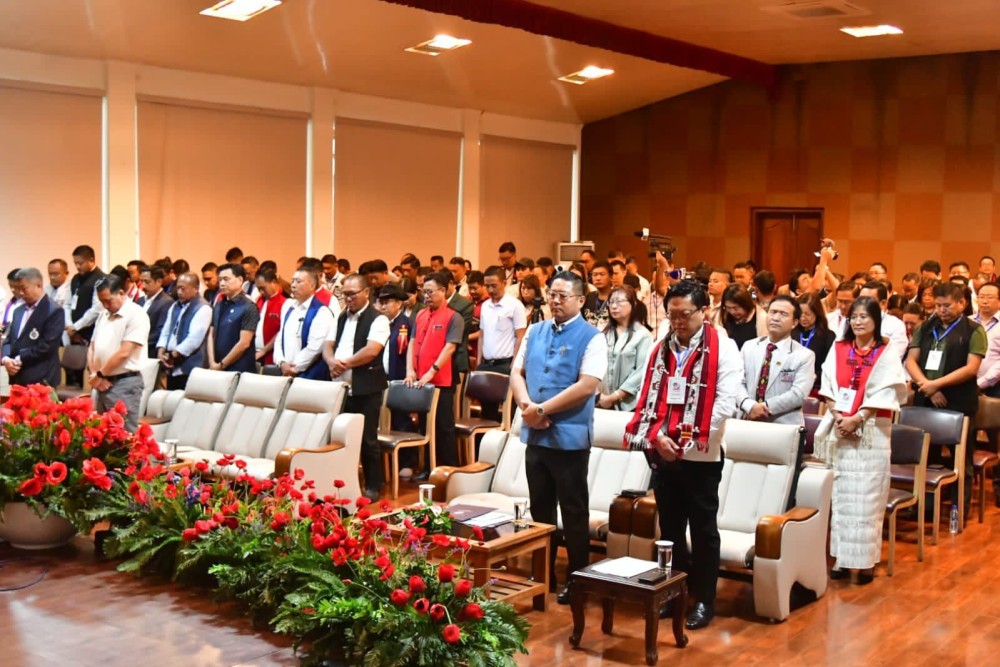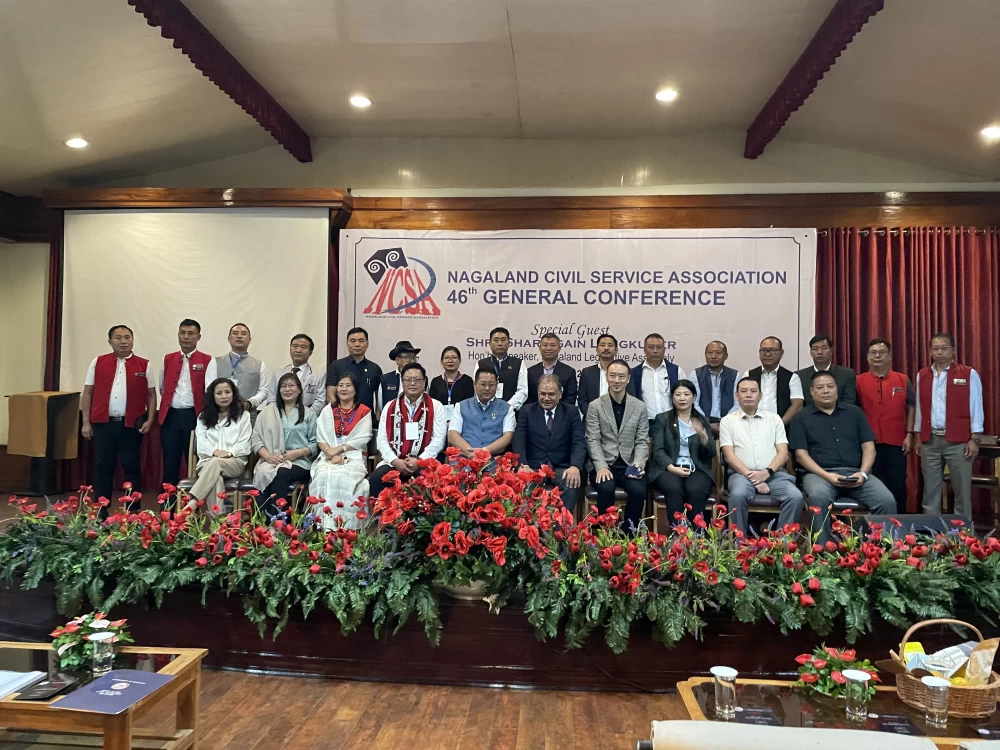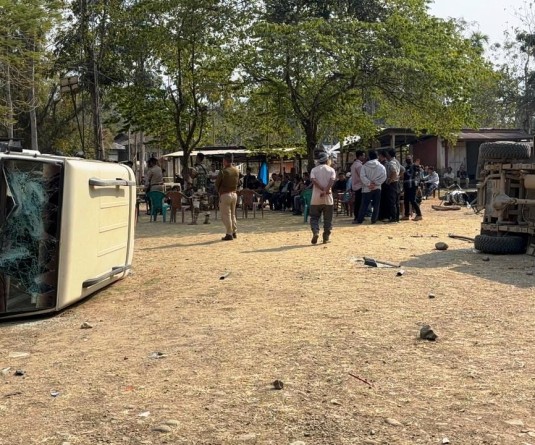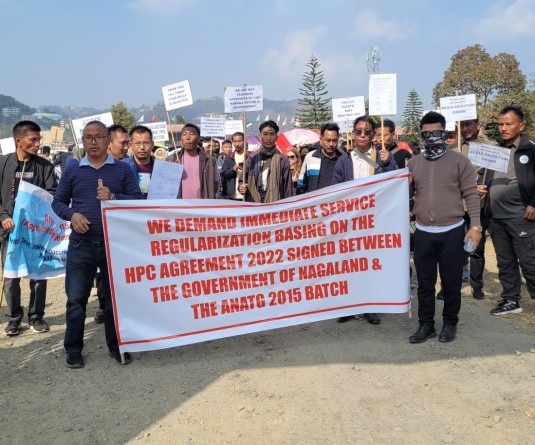NLA Speaker Sharingain Longkumer (front in waist coat) and NCS officers taking a moment of silence in memory of NCS officers, who are no more, at the 46th NCSA general conference in Chümoukedima on October 20.

NCSA holds 46th general conference
Morung Express News
Dimapur | October 20
As the most visible face of the state machinery, the performance of the “civil servants” defines the people’s impression of the government, said the Speaker of the 14th Nagaland Legislative Assembly (NLA), Sharingain Longkumer. “Good performance on your part will bring accolades to the Government and lack of it, criticisms. It needs to be clearly understood that you also have certain responsibilities and are also accountable as well,” said Longkumer at the 46th Nagaland Civil Service Association (NCSA) general conference held at the Niathu Resort, Chümoukedima on October 20.
The Nagaland Civil Service (NCS) cadre predates statehood. It was constituted in the year 1959 when present-day Nagaland was known as ‘Naga Hills Tuensang Areas’ (NHTA). The cadre has today 274 officers.
As a bulwark of the state bureaucracy that touches base with the grassroots, he said that by virtue of their varied field experience, the NCS officers bridge gaps — that the government policies may have overlooked – through critical inputs “to enable change and adaptation to differing local conditions and requirements.”

He however maintained that the expectations in an ever evolving world can be “meaningfully actuated if only the officers themselves are well trained and equipped for meeting the expectations of the people they serve.” He urged the officers to seize and avail all possible training opportunities as how well the officers adapt to the changing times, especially in the age of communication and information technology, will determine the relevance of the NCSA in the years to come.
While stating the conference should serve as an introspective platform to ruminate on “what has been achieved, what remains to be achieved and also set the goals to be achieved,” he added that the NCS officers should set high standards of efficiency their performance is directly related to citizen wellbeing.
In this aspect, he emphasised the essence of integrity, transparency and accountability.
According to Longkumer, officers compromise their integrity by lobbying for prized postings or other forms of political favours.
He said that it not only erodes the image of the civil service but also demoralises others, who would be more efficient and deserving, but lack influence. “In the process, many well meaning and deserving officers are made to languish in remote postings for years on end…” he said, while frustration creeps in. Terming it a malaise, he urged the NCSA to take corrective steps.
Cadre management
On the part of the government, he claimed commitment to improving cadre management of the NCS and providing better working conditions, while also introducing intensive focus on capacity building of the NCS officers.
In a state where governance is claimed to be grassroots-based, he said that the villages receive huge funding. He however said that the devolution of development responsibilities to the grassroots is not without concern as a vast majority of the village level functionaries lack the experience, expertise and infrastructure to make the best use of the resources.
“It is therefore of utmost importance that the NCS officers in discharge of their duties, give the right direction and guidance to help our rural society move toward real economic growth and prosperity,” he said.
Rule-based postings
Chief Secretary, J Alam, who delivered the keynote address, also echoed the Speaker’s view on cadre management. According to him, there are rules on paper but the implementation has not been satisfactory serving as cause for dissatisfaction. While stating that there is a joke alluding to a perceived “two cadres” in the NCS – one for the capital and commercially important places and the other for remote locations — Alam batted for following a rule-based transfer and posting.
He further laid emphasis on the NCS creating a culture of generating fresh ideas and innovation. With integrity, transparency and accountability as the guiding principles, he called for reforms targeted at improving service delivery.
He termed the NCS as a vital institution that is responsible not only for implementing law but also serves as an agent of social and economic change. Emphasising the significance of the civil services, he said that it enjoys special Constitutional protection insulating civil servants from “extraneous pressure.”
The salary in the civil services would not be comparable with other professions but he termed as incomparable the unique opportunities and experiences the civil servants are exposed to. He said, “Officers are working in difficult conditions yet the satisfaction they derive in making a change of some people is inspiring.”





